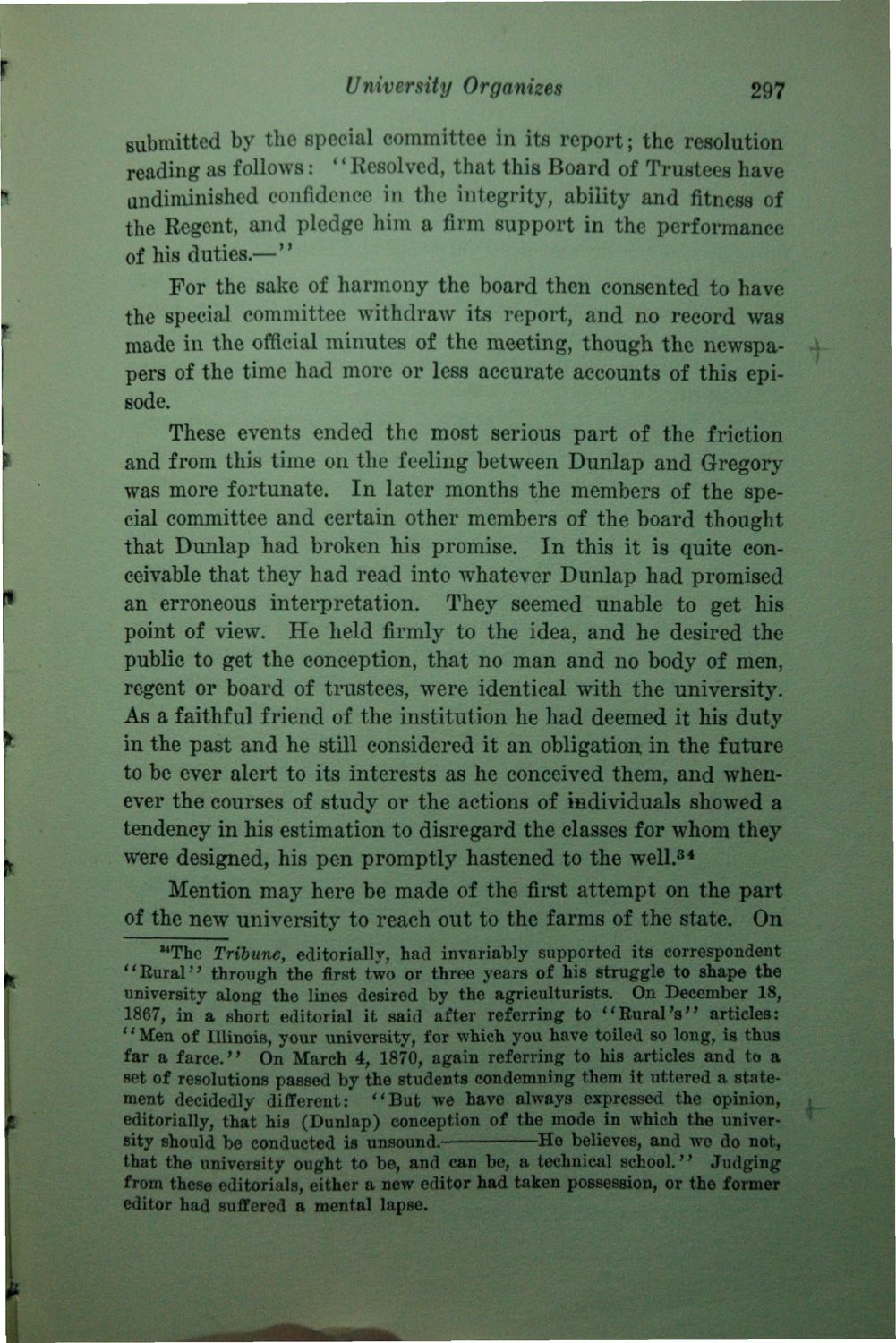| |
| |
Caption: Book - History of the University (Powell)
This is a reduced-resolution page image for fast online browsing.

EXTRACTED TEXT FROM PAGE:
University Organizes 297 submitted by the special committee in its report; the resolution reading as follows: "Resolved, that this Board of Trustees have undiminished confidence in the integrity, ability and fitness of the Regent, and pledge him a firm support in the performance of his duties.—" For the sake of harmony the board then consented to have the special committee withdraw its report, and no record was made in the official minutes of the meeting, though the newspapers of the time had more or less accurate accounts of this episode. These events ended the most serious part of the friction and from this time on the feeling between Dunlap and Gregory was more fortunate. In later months the members of the special committee and certain other members of the board thought that Dunlap had broken his promise. In this it is quite conceivable that they had read into whatever Dunlap had promised an erroneous interpretation. They seemed unable to get his point of view. He held firmly to the idea, and he desired the public to get the conception, that no man and no body of men, regent or board of trustees, were identical with the university. As a faithful friend of the institution he had deemed it his duty in the past and he still considered it an obligation, in the future to be ever alert to its interests as he conceived them, and whenever the courses of study or the actions of individuals showed a tendency in his estimation to disregard the classes for whom they were designed, his pen promptly hastened to the well.84 Mention may here be made of the first attempt on the part of the new university to reach out to the farms of the state. On "The Tribune, editorially, had invariably supported its correspondent "Rural" through the first two or three years of his struggle to shape the university along the lines desired by the agriculturists. On December 18, 1867, in a short editorial it said after referring to }'Rural V articles: "Men of Illinois, your university, for which you have toiled so long, is thus far a farce.'f On March 4, 1870, again referring to his articles and to a set of resolutions passed by the students condemning them it uttered a statement decidedly different: "But we have always expressed the opinion, editorially, that his (Dunlap) conception of the mode in which the university should be conducted is unsound. He believes, and we do not, that the university ought to be, and can be, a technical school." Judging from these editorials, either a new editor had taken possession, or the former editor had suffered a mental lapse.
| |